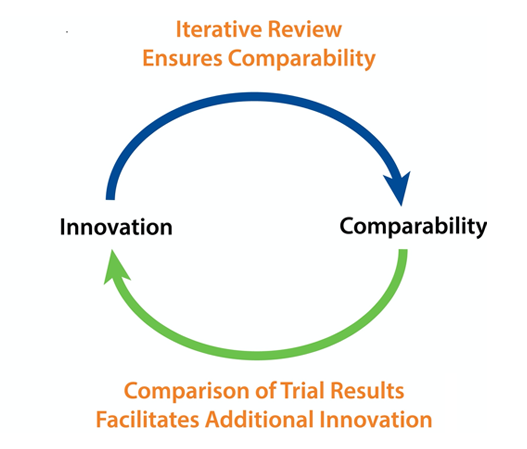5th February 2021
Making phase II clinical trials more consistent, comparable, and informative of the biology underlying MS are among the International Progressive MS Alliance’s key goals for speeding new therapies for progressive MS.
- An expert panel of the Alliance has taken a crucial step in this direction by publishing a paper recommending changes in the way these trials are designed and conducted.
- The Alliance also proposes to launch a new funding program to advance trials that follow these recommendations, after gaining feedback from the broader MS community.
- The paper was published in Nature Reviews Neurology on January 22, 2021.
“This paper is an important milestone in the Alliance’s goal of accelerating new treatments for people with progressive MS,” stated Professor Alan Thompson, Chair of the Scientific Steering Committee of the International Progressive MS Alliance. “We look forward to getting feedback from stakeholders so that our plans for a new funding program will do even more to speed this work.”
Background: Phase II trials are the stage of testing that comes before the larger phase III trials that are required to seek regulatory approval of a therapy. Generally, phase II trials are short studies conducted to look for signs that an experimental medicine is beneficial and appears safe. How its benefit is determined can vary greatly, from imaging scans and blood tests to clinical measures of disease activity. The choice of outcome measures is critical because the decision to launch laborious and expensive phase III trials depends on whether the phase II trial is considered a success or a failure.
An expert panel of the International Progressive MS Alliance formed to encourage consistency and improve comparability in how phase II trials are currently conducted. Under the leadership of co-chairs Drs. Marco Salvetti (Sapienza University and INM) and Fernando Dangond (representative of the Alliance’s Industry Forum), the team developed the recently published recommendations.
Recommendations: The authors make the case that phase II trials can and should be informative about disease mechanisms even if their results are considered negative. They make specific comments in the paper related to study designs, types of outcome measures, and disease activity markers. Their recommendations for best practices for phase II trials include:
-
- Testing multiple medicines at the same time using advanced trial designs;
- Testing new therapies in combination with an approved MS therapy to reduce the potential interference of inflammation on trial results;
- Using diverse measures of disease biology, on top of a core set of outcome measures to track an experimental medicine’s effects. Core measures include:
- Clinical measures (such as upper limb dexterity) to track disability, and composite clinical outcomes, and could also include ancillary testing of mobility, vision, cognition and others (depending on characteristics of study population)
- Paraclinical tests (such as imaging, blood markers) to measure disease activity
- Tests of biological response indicators, related to mechanism of action
- Exploratory measures, such as gene transcriptomics
- Using less restrictive criteria for characteristics of people to be included in a trial;
- Using alternative clinical trial designs; and
- Soliciting feedback on feasibility of trial designs from people living with MS.

